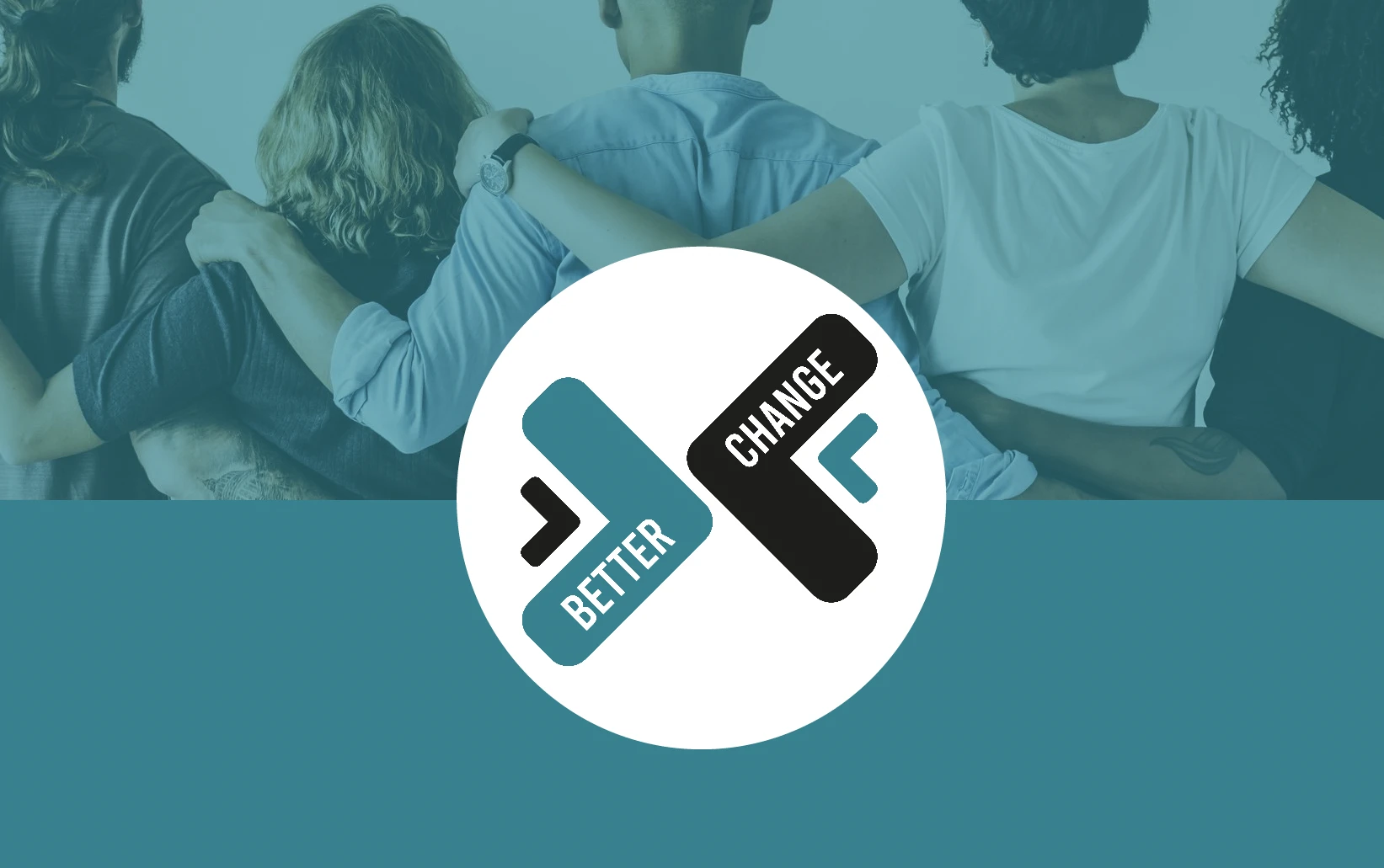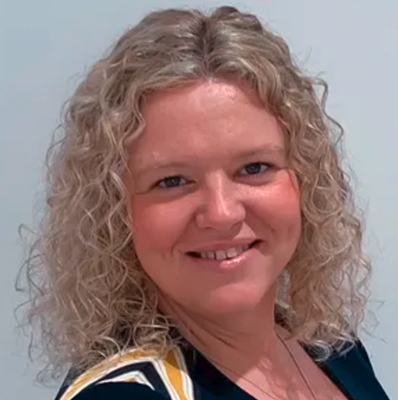Safer Gambling Week: From a better perspective

Safer gambling is at the forefront of the industry’s collective conscious. It’s a talking point on every panel; the subject of thousands of op-eds. It’s one thing we can all agree on.
But there’s a point of contention surrounding the way safer gambling is offered – or rather, how far it should go. At Better Change, balance is the most important aspect.
“To sum us up, we’re about promoting positive play,” says Reed. “That is us in a nutshell. What we mean by that is, we want to empower all the operators and all the customers to reach their potential.
“Everybody that comes into a gaming company should be able to have the enjoyment, the entertainment experience that they deserve. But there is a moral obligation on the operator to make sure that person remains safe and that play doesn’t turn harmful.”

For Reed, the foundational ethos of Better Change is to interact with customers in a specific way. That is, knowing how and when to do it.
“We’re about finding ways to interact with the customers at the most appropriate time and the most appropriate way, to make sure they get the education they need without disrupting that enjoyment,” Reed explains.
What’s the motivation?
Reed has spent ten years in the industry, honing her craft across various operator groups. However, the seeds for Better Change were planted long before this, across the technology-laden landscape of Silicon Valley.
There, Reed ran a consultancy that worked to “pivot, future-proof, differentiate” companies. This future-proofing played a key role in her career going forward. In particular, when she received a phone call from a recruiter for a head of bingo role.
“I was working for a Silicon Valley technology company, which had a half a billion-dollar valuation in the US and were like, we don’t know what to do next,” she says. “While I was doing that, I literally got a phone call from a recruiter in Gibraltar who said we’ve got a head of bingo role and would I be interested?
“They [Gala Bingo] were looking to sort of differentiate against Mecca and sort of future-proof and they’d be really interested in your experience.”
Keeping it regulated
In progressing further in the industry, Reed saw positive reactions from both operators and leadership boards on how the industry can change the way it interacts with its customers. However, the reactions from regulators told a different story.
“It really frustrated me because I could see that the regulators and the environment that we’ve got in the UK was demotivating the operators to really try and go above and beyond and do anything different,” she continues.
“This is because it was easier and safer for them to just do the same thing over and over again and invest on the commercial side of things.
“I also felt really strongly that it was really unfair that, as operators, we were constantly being told we were the devil and we weren’t doing enough. That if you placed your first bet, you’re going to end up with a gambling addiction. It was just a really unhealthy toxic environment.”
From a different perspective
Better Change wasn’t founded to demonise the industry. Instead, it focuses on integrating safer gambling so seamlessly that customers are fully aware of it, but it doesn’t interrupt non-unhealthy play.
“We’re not a type of compliance company that says, we want a message to pop up when someone presses deposit that says ‘Oh, you want to think twice about this. Are you sure you want to make a deposit?’,” Reed continues.
“No, it’s about seamlessly dovetailing the communications in with the commercial ones that you get, to a point to where the safer gambling pages are, to make sure the right tools are available; to make sure the customer service teams have been adequately trained in how to interact with customers in a respectful way.”
The wider industry has come up against its share of criticism – much of it warranted. The GB Gambling Commission regularly orders operators to pay regulatory settlements for violating licence conditions, with social responsibility breaches constituting many of these.
Unfairly tarnished
Earlier this year, the Commission ordered William Hill to pay the largest regulatory settlement on record – £19.2m – for breaching a number of social responsibility and anti-money laundering measures.
While it is necessary to pay close attention to, and appropriately punish, serious infractions of player protection Reed sees the bigger picture – an industry that acts as a safe, fun pastime for a grand majority of players.
“Personally, I love the industry and I’m really proud of the industry,” she says. “Why would I feel ashamed of the fact that I’m in an industry that’s one of the oldest that’s ever existed, that contributes huge amounts of tax every year? What exactly am I meant to feel ashamed about?”
Of those that are suffering harm, Reed says they are what inspired her to found Better Change in the first place.
“And do I understand that working in an industry that could offer harm, that I have a moral obligation to try and make sure that it remains as harm free as possible?” she continues. “Yes, and that’s why I founded Better Change because I actually feel that the industry has been unfairly tarnished.”
Pushed to the edge
For some operators, player protection is an afterthought. While this is a purposeful – and corrupt – decision by some, Reed believes others have been driven to that point.
“I think operators have been beaten around their heads for so long now that they’ve sort of gone, ‘Stuff that, I’m going to give up and put my money into commercial efforts.’ This is because they’ve been beaten down so much and told that they’re the devil,” she explains.
And if we lock away the moral compass for a moment, at its most unemotional form, problem gambling is simply bad for business.
“That’s the area of the industry that I want to try and reinvigorate. The interest in that care, and try and get the industry a little bit of recognition that it’s not good for business to have someone with gambling harm on your books,” Reed continues.
Give and take
So, what exactly does Reed want from the industry? In a nutshell, she wants more recognition from regulators on the multitude of safer gambling efforts happening across the industry.
“I want the regulators to understand that there is more than one voice,” she muses. “I think up until now we have heard predominantly from the lived experience side of the industry. We need to understand that actually, there is a lot of really fantastic work going on to protect players. This can ensure that the gaming industry is one that is sustainable for many generations.”
While she recognises that this is slow going, Reed is seeing the bigger picture: a process wherein effective safer gambling products can be funded and implemented as quickly as possible.
“But it’s slow, and I want the regulators to not keep commissioning the same stuff and people over again without questioning and really understanding what impacts are being generated,” she explains. “That for me is key.”
The onus isn’t just on the regulators however. Operators must be held equally accountable.
“I want the operators to reignite that demotivation they had, or turn around that demotivation,” she says.
“… And for them to get the credit where it’s due – that they have done some really fantastic work and they’ve taken up the challenge. We want to be a sustainable industry that cares about our players and we are prepared to invest heavily in it.”
What Reed wants requires the industry to stop saving face and address the issues at hand.
Ultimately, Better Change might just be the solution to that problem.
